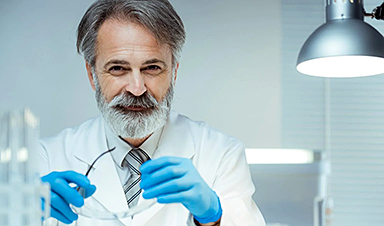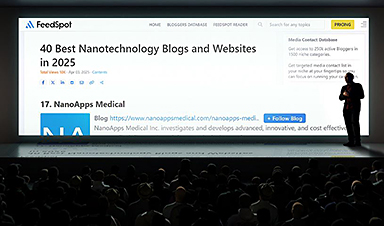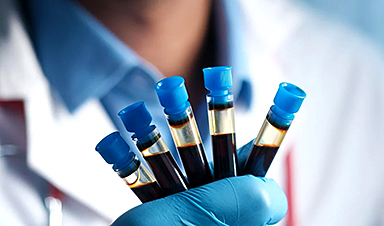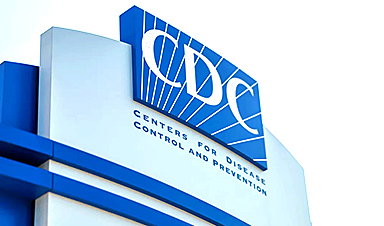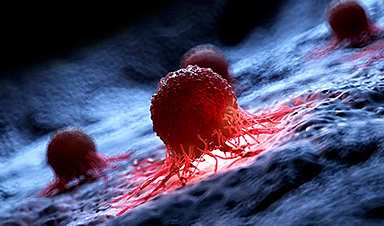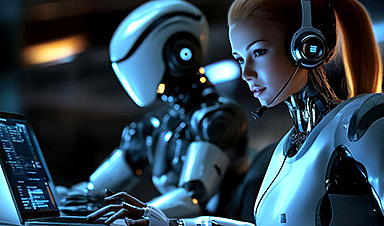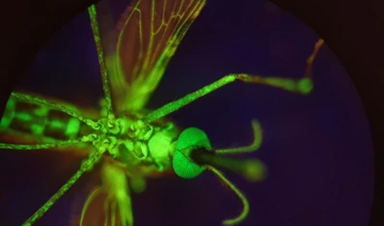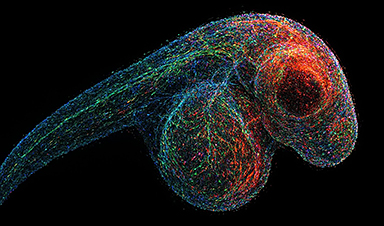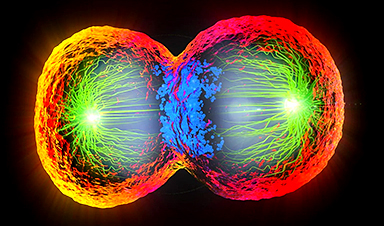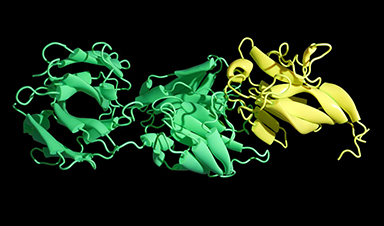A landmark global survey conducted across 68 countries has found that public trust in scientists remains robust, with significant support for their active involvement in societal and political matters.
The study highlights the public’s demand for science to prioritize issues like public health and energy solutions over defense technologies, pointing to a potential misalignment between scientific priorities and public expectations.
Global Trust in Science Research
A global survey conducted across 68 countries shows that public trust in scientists remains strong. The study, led by researchers from the University of Zurich and ETH Zurich, is the largest of its kind conducted since the COVID-19 pandemic. It explores public trust in science, societal expectations, and views on research priorities.
The findings, based on data from 241 researchers, indicate that trust in scientists is moderately high worldwide. Viktoria Cologna of ETH Zurich and Niels G. Mede of the University of Zurich, who led the study, stated that “our results show that most people in most countries have a relatively high level of trust in scientists” and believe they should play an active role in society and politics. Contrary to popular belief, the study found no evidence of a widespread crisis of trust in science.
The study is the result of the TISP Many Labs study, a collaborative effort that allowed the authors to survey 71,922 people in 68 countries, including many under-researched countries in the Global South. For the first time since the coronavirus pandemic, the study provides global, representative survey data on the populations and regions of the world in which researchers are perceived to be most trustworthy, the extent to which they should engage with the public, and whether science is prioritizing important research issues.
No Crisis of Trust in Science
Across 68 countries, the study finds that the majority of the public has a relatively high level of trust in scientists (mean trust level = 3.62, on a scale of 1 = very low trust to 5 = very high trust). The majority of respondents also perceive scientists as qualified (78%), honest (57%), and concerned about people’s well-being (56%).
However, the results also reveal some areas of concern. Globally, less than half of respondents (42%) believe that scientists pay attention to the views of others. “Our results also show that many people in many countries feel that the priorities of science are not always well aligned with their own priorities,” says co-author Niels G. Mede. “We recommend that scientists take these results seriously and find ways to be more receptive to feedback and open to dialogue with the public.”
Differences Between Countries and Population Groups
The findings confirm the results of previous studies that show significant differences between countries and population groups. In particular, people with right-wing political views in Western countries tend to have less trust in scientists than those with left-wing views. This suggests that attitudes toward science tend to polarize along political lines. In most countries, however, political orientation and trust in scientists were not related.
Advocacy and Policy: The Role of Scientists in Society
A majority of respondents want science to play an active role in society and policy-making. Globally, 83% of respondents believe that scientists should communicate with the public about science, providing an impetus for increased science communication efforts. Only a minority (23%) believe that scientists should not actively advocate for specific policies. 52% believe that scientists should be more involved in the policy-making process.
Participants gave high priority to research to improve public health, solve energy problems, and reduce poverty. On the other hand, research to develop defense and military technology was given a lower priority. In fact, participants explicitly believe that science is prioritizing the development of defense and military technology more than they would like, highlighting a potential misalignment between public and scientific priorities.
Explore Further: Science Gets a Global Thumbs-Up – What 68 Countries Really Think
Reference: “Trust in scientists and their role in society across 68 countries” by Viktoria Cologna, Niels G. Mede, Sebastian Berger, John Besley, Cameron Brick, Marina Joubert, Edward W. Maibach, Sabina Mihelj, Naomi Oreskes, Mike S. Schäfer, Sander van der Linden, Nor Izzatina Abdul Aziz, Suleiman Abdulsalam, Nurulaini Abu Shamsi, Balazs Aczel, Indro Adinugroho, Eleonora Alabrese, Alaa Aldoh, Mark Alfano, Innocent Mbulli Ali, Mohammed Alsobay, Marlene Altenmüller, R. Michael Alvarez, Richard Amoako, Tabitha Amollo, Patrick Ansah, Denisa Apriliawati, Flavio Azevedo, Ani Bajrami, Ronita Bardhan, Keagile Bati, Eri Bertsou, Cornelia Betsch, Apurav Yash Bhatiya, Rahul Bhui, Olga Białobrzeska, Michał Bilewicz, Ayoub Bouguettaya, Katherine Breeden, Amélie Bret, Ondrej Buchel, Pablo Cabrera-Álvarez, Federica Cagnoli, André Calero Valdez, Timothy Callaghan, Rizza Kaye Cases, Sami Çoksan, Gabriela Czarnek, Steven De Peuter, Ramit Debnath, Sylvain Delouvée, Lucia Di Stefano, Celia Díaz-Catalán, Kimberly C. Doell, Simone Dohle, Karen M. Douglas, Charlotte Dries, Dmitrii Dubrov, Małgorzata Dzimińska, Ullrich K. H. Ecker, Christian T. Elbaek, Mahmoud Elsherif, Benjamin Enke, Tom W. Etienne, Matthew Facciani, Antoinette Fage-Butler, Md. Zaki Faisal, Xiaoli Fan, Christina Farhart, Christoph Feldhaus, Marinus Ferreira, Stefan Feuerriegel, Helen Fischer, Jana Freundt, Malte Friese, Simon Fuglsang, Albina Gallyamova, Patricia Garrido-Vásquez, Mauricio E. Garrido Vásquez, Winfred Gatua, Oliver Genschow, Omid Ghasemi, Theofilos Gkinopoulos, Jamie L. Gloor, Ellen Goddard, Mario Gollwitzer, Claudia González-Brambila, Hazel Gordon, Dmitry Grigoryev, Gina M. Grimshaw, Lars Guenther, Håvard Haarstad, Dana Harari, Lelia N. Hawkins, Przemysław Hensel, Alma Cristal Hernández-Mondragón, Atar Herziger, Guanxiong Huang, Markus Huff, Mairéad Hurley, Nygmet Ibadildin, Maho Ishibashi, Mohammad Tarikul Islam, Younes Jeddi, Tao Jin, Charlotte A. Jones, Sebastian Jungkunz, Dominika Jurgiel, Zhangir Kabdulkair, Jo-Ju Kao, Sarah Kavassalis, John R. Kerr, Mariana Kitsa, Tereza Klabíková Rábová, Olivier Klein, Hoyoun Koh, Aki Koivula, Lilian Kojan, Elizaveta Komyaginskaya, Laura König, Lina Koppel, Kochav Koren Nobre Cavalcante, Alexandra Kosachenko, John Kotcher, Laura S. Kranz, Pradeep Krishnan, Silje Kristiansen, André Krouwel, Toon Kuppens, Eleni A. Kyza, Claus Lamm, Anthony Lantian, Aleksandra Lazić, Oscar Lecuona, Jean-Baptiste Légal, Zoe Leviston, Neil Levy, Amanda M. Lindkvist, Grégoire Lits, Andreas Löschel, Alberto López Ortega, Carlos Lopez-Villavicencio, Nigel Mantou Lou, Chloe H. Lucas, Kristin Lunz-Trujillo, Mathew D. Marques, Sabrina J. Mayer, Ryan McKay, Hugo Mercier, Julia Metag, Taciano L. Milfont, Joanne M. Miller, Panagiotis Mitkidis, Fredy Monge-Rodríguez, Matt Motta, Iryna Mudra, Zarja Muršič, Jennifer Namutebi, Eryn J. Newman, Jonas P. Nitschke, Ntui-Njock Vincent Ntui, Daniel Nwogwugwu, Thomas Ostermann, Tobias Otterbring, Jaime Palmer-Hague, Myrto Pantazi, Philip Pärnamets, Paolo Parra Saiani, Mariola Paruzel-Czachura, Michal Parzuchowski, Yuri G. Pavlov, Adam R. Pearson, Myron A. Penner, Charlotte R. Pennington, Katerina Petkanopoulou, Marija B. Petrović, Jan Pfänder, Dinara Pisareva, Adam Ploszaj, Karolína Poliaková, Ekaterina Pronizius, Katarzyna Pypno-Blajda, Diwa Malaya A. Quiñones, Pekka Räsänen, Adrian Rauchfleisch, Felix G. Rebitschek, Cintia Refojo Seronero, Gabriel Rêgo, James P. Reynolds, Joseph Roche, Simone Rödder, Jan Philipp Röer, Robert M. Ross, Isabelle Ruin, Osvaldo Santos, Ricardo R. Santos, Philipp Schmid, Stefan Schulreich, Bermond Scoggins, Amena Sharaf, Justin Sheria Nfundiko, Emily Shuckburgh, Johan Six, Nevin Solak, Leonhard Späth, Bram Spruyt, Olivier Standaert, Samantha K. Stanley, Gert Storms, Noel Strahm, Stylianos Syropoulos, Barnabas Szaszi, Ewa Szumowska, Mikihito Tanaka, Claudia Teran-Escobar, Boryana Todorova, Abdoul Kafid Toko, Renata Tokrri, Daniel Toribio-Florez, Manos Tsakiris, Michael Tyrala, Özden Melis Uluğ, Ijeoma Chinwe Uzoma, Jochem van Noord, Christiana Varda, Steven Verheyen, Iris Vilares, Madalina Vlasceanu, Andreas von Bubnoff, Iain Walker, Izabela Warwas, Marcel Weber, Tim Weninger, Mareike Westfal, Florian Wintterlin, Adrian Dominik Wojcik, Ziqian Xia, Jinliang Xie, Ewa Zegler-Poleska, Amber Zenklusen and Rolf A. Zwaan, 20 January 2025, Nature Human Behaviour.
DOI: 10.1038/s41562-024-02090-5
News
AI Outperforms Physicians in Real-World Urgent Care Decisions, Study Finds
The study, conducted at the virtual urgent care clinic Cedars-Sinai Connect in LA, compared recommendations given in about 500 visits of adult patients with relatively common symptoms – respiratory, urinary, eye, vaginal and dental. [...]
Challenging the Big Bang: A Multi-Singularity Origin for the Universe
In a study published in the journal Classical and Quantum Gravity, Dr. Richard Lieu, a physics professor at The University of Alabama in Huntsville (UAH), which is a part of The University of Alabama System, suggests that [...]
New drug restores vision by regenerating retinal nerves
Vision is one of the most crucial human senses, yet over 300 million people worldwide are at risk of vision loss due to various retinal diseases. While recent advancements in retinal disease treatments have [...]
Shingles vaccine cuts dementia risk by 20%, new study shows
A shingles shot may do more than prevent rash — it could help shield the aging brain from dementia, according to a landmark study using real-world data from the UK. A routine vaccine could [...]
AI Predicts Sudden Cardiac Arrest Days Before It Strikes
AI can now predict deadly heart arrhythmias up to two weeks in advance, potentially transforming cardiac care. Artificial intelligence could play a key role in preventing many cases of sudden cardiac death, according to [...]
NanoApps Medical is a Top 20 Feedspot Nanotech Blog
There is an ocean of Nanotechnology news published every day. Feedspot saves us a lot of time and we recommend it. We have been using it since 2018. Feedspot is a freemium online RSS [...]
This Startup Says It Can Clean Your Blood of Microplastics
This is a non-exhaustive list of places microplastics have been found: Mount Everest, the Mariana Trench, Antarctic snow, clouds, plankton, turtles, whales, cattle, birds, tap water, beer, salt, human placentas, semen, breast milk, feces, testicles, [...]
New Blood Test Detects Alzheimer’s and Tracks Its Progression With 92% Accuracy
The new test could help identify which patients are most likely to benefit from new Alzheimer’s drugs. A newly developed blood test for Alzheimer’s disease not only helps confirm the presence of the condition but also [...]
The CDC buried a measles forecast that stressed the need for vaccinations
This story was originally published on ProPublica, a nonprofit newsroom that investigates abuses of power. Sign up to receive our biggest stories as soon as they’re published. ProPublica — Leaders at the Centers for Disease Control and Prevention [...]
Light-Driven Plasmonic Microrobots for Nanoparticle Manipulation
A recent study published in Nature Communications presents a new microrobotic platform designed to improve the precision and versatility of nanoparticle manipulation using light. Led by Jin Qin and colleagues, the research addresses limitations in traditional [...]
Cancer’s “Master Switch” Blocked for Good in Landmark Study
Researchers discovered peptides that permanently block a key cancer protein once thought untreatable, using a new screening method to test their effectiveness inside cells. For the first time, scientists have identified promising drug candidates [...]
AI self-cloning claims: A new frontier or a looming threat?
Chinese scientists claim that some AI models can replicate themselves and protect against shutdown. Has artificial intelligence crossed the so-called red line? Chinese researchers have published two reports on arXiv claiming that some artificial [...]
New Drug Turns Human Blood Into Mosquito-Killing Weapon
Nitisinone, a drug for rare diseases, kills mosquitoes when present in human blood and may become a new tool to fight malaria, offering longer-lasting, environmentally safer effects than ivermectin. Controlling mosquito populations is a [...]
DNA Microscopy Creates 3D Maps of Life From the Inside Out
What if you could take a picture of every gene inside a living organism—not with light, but with DNA itself? Scientists at the University of Chicago have pioneered a revolutionary imaging technique called volumetric DNA microscopy. It builds [...]
Scientists Just Captured the Stunning Process That Shapes Chromosomes
Scientists at EMBL have captured how human chromosomes fold into their signature rod shape during cell division, using a groundbreaking method called LoopTrace. By observing overlapping DNA loops forming in high resolution, they revealed that large [...]
Bird Flu Virus Is Mutating Fast – Scientists Say Our Vaccines May Not Be Enough
H5N1 influenza is evolving rapidly, weakening the effectiveness of existing antibodies and increasing its potential threat to humans. Scientists at UNC Charlotte and MIT used high-performance computational modeling to analyze thousands of viral protein-antibody interactions, revealing [...]
